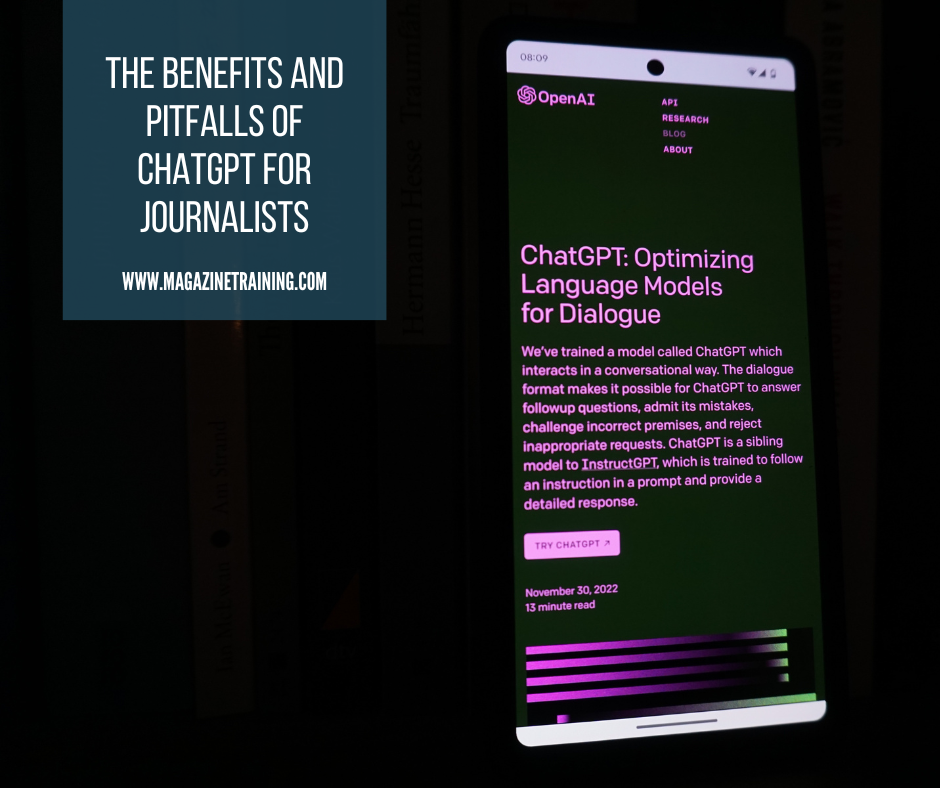
ChatGPT, an artificial intelligence (AI) language model created by OpenAI, has been making waves across the internet, leading to questions on how AI will change the way we work and write.
In the latest ICFJ Pamela Howard Forum on Global Crisis Reporting webinar, Jenna Burrell, director of research at Data & Society, dove into the pros of ChatGPT and how it can be a tool for journalists, as well as its limitations and what journalists should be cautious about.
ChatGPT can simplify concepts
One of the most important tasks for journalists is simplifying complex topics for a general audience. ChatGPT makes this easier, Burrell said. Using the language model allows journalists to plug an abstract or part of an academic article into ChatGPT and ask the software to simplify it. A journalist can use this tool to better understand an article or idea before interviewing the piece’s author.
ChatGPT is also useful for non-native English speakers. Its simplification feature allows non-native English speakers who might be able to understand basic English to “translate” any work into a more basic form. This is especially useful for topics that use complex or specialized language like science or economics. For now, this only works in English.
It can assist you with questions for interviews
Journalists can use ChatGPT to prepare for interviews. You can list questions you have in mind for an interview subject, and the software will create more questions modeled after them. The software can also copy a previous interview, or an article written by the interviewee, and develop questions about that topic.
ChatGPT can be used as a copy-editor. Journalists can input their articles for a last review before sending them to their editor, for example by asking ChatGPT to edit the article in a specific format like AP style. However, journalists should still review and fact-check the changes ChatGPT makes to ensure that no information added is false.
You cannot always trust its results
Journalists should be aware of ChatGPT’s major flaw: it cannot be trusted. ChatGPT was trained on data found on the internet as of 2021, and it responds to prompts by making predictions on the most likely answer to queries. By using this model, it sometimes generates an answer that’s not factually correct.
For example, when Burell asked ChatGPT for experts in the field of data science, it produced a list of well-known academics who study the subject. However, when the question was modified to ask for Ghanaian experts in data science, none of the names it presented actually existed when checked.
Burrell warned journalists to be aware of ChatGPT’s proclivity to “fill the data void.” ChatGPT will not answer a question by saying it does not know the answer; instead, if the data it has doesn’t provide an answer, it will simply make one up. This can be especially problematic in regions where the internet has been historically devoid of data. “Because it takes a little bit from here and there, it often produces just absolutely incorrect results and it’s hard to figure out when it’s incorrect,” Burell said.
by Marina Cemaj Hochstein
Photo by Rolf van Root on Unsplash
Related posts
Magazine Training International’s mission is to encourage, strengthen, and provide training and resources to Christian magazine publishers as they seek to build the church and reach their societies for Christ.

